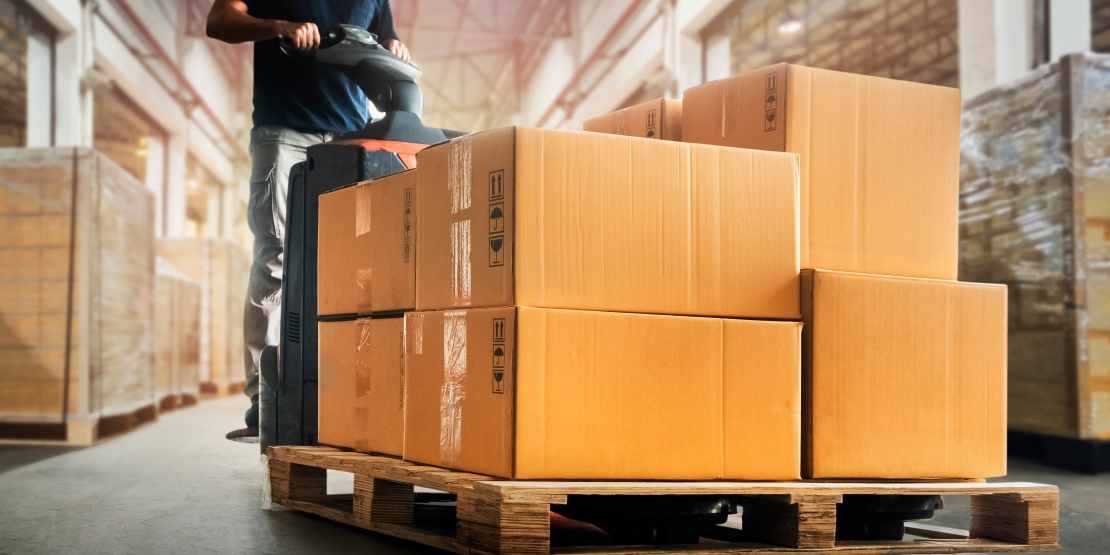In today's world, supply chains are becoming increasingly long, complex, and subject to significant uncertainties. As successive crises disrupt global supply chains, companies are more than ever seeking to secure their procurement whilst stabilising costs. This is why many are reorienting their procurement strategy, across all product categories, towards local producers and suppliers. This approach offers multiple benefits, ranging from reduced delivery times to a better carbon footprint whilst strengthening control over the supply chain.
Local sourcing: a growing trend
As part of their procurement strategy, companies work with different types of suppliers. They can consider geographical location to favour economic operators close to their own location. These are known as local suppliers, operating in the same city, region, country, or continent.
For a long time, international sourcing was popular among companies. Manufacturing abroad was often less costly, allowing them to meet demand in increasingly competitive markets.
However, many companies are now revising their approach in favour of local sourcing. As experts from the latest Kyu supply chain risk barometer point out: "Even before the Covid crisis, we were already seeing a trend towards relocation to regain competitiveness, to escape geopolitical tensions between the United States and China, or to move closer to consumer markets by shifting from globalised production to multi-local production (Glocal!)". Today, the speed, adaptability, and collaboration of local suppliers ensure supply chain resilience.
The main advantages of local suppliers
Local sourcing attracts companies not only to guard against disruption risks but also for many other advantages that contribute to overall performance.
Shorter delivery times
The primary and most obvious advantage of local producers and suppliers is significantly shorter delivery times. This benefit comes from reducing the distances between a company and its supplier, as well as maintaining a good relationship with them. Indeed, proximity is geographical, linguistic, and cultural. As a result, companies can coordinate more easily and increase their productivity.
Better responsiveness and flexibility
Additionally, local suppliers can be particularly flexible and responsive. A company may have an urgent need to start production on an important order, receive samples, or exchange products. In such cases, local suppliers and producers can deliver goods much faster than a supplier on the other side of the world.
Better control over the supply chain
It's also easier to supervise the links in a product's supply chain when the supplier is nearby. Site visits and meetings are easier to organise, allowing for more rigorous and regular process control. This facilitates communication and collaboration between various stakeholders, thus strengthening the overall relationship. It provides an additional guarantee for any company that its supplier meets its quality standards, or even pays particular attention to them.
Reduced costs
To reduce their costs, companies have every interest in optimising their supply chain. This approach notably involves favouring local suppliers. As this shortens the supply chain, it automatically reduces all costs related to shipping goods: transport, warehousing, customs, insurance, tax. It also optimises other operational costs related to managing your own procurement and stock thanks to shorter delivery times, as well as supplier management through more fluid communication.
Lower impact on the environment
While shortening the supply chain reduces costs, it also decreases greenhouse gas emissions. This particularly concerns the carbon footprint associated with logistics activities whether transport or warehousing.
The major challenges of local sourcing
Collaboration with local suppliers raises key issues in terms of differentiation, competitiveness, and overall impact on the ecosystem.
Customer satisfaction
Thanks to their local producers and suppliers, companies ensure business continuity. They can thus quickly deliver quality products to their customers. Beyond this operational excellence, it's also a matter of sensitivities. Indeed, companies manage to reduce their impact on the environment while supporting the local, national, or European economy. This helps enhance customer satisfaction and loyalty. Moreover, in case of exchanges or returns of local products, these can also be handled in no time.
Profitability
As you now know, local sourcing is a source of significant savings, thanks to reduced shipping and operational costs. Moreover, it's also a formidable growth lever. Customer satisfaction, combined with a good brand image, can quickly boost sales. Thus, by both reducing expenditures and increasing revenues, local sourcing proves to be a fantastic profitability lever.
Brand image
By collaborating with local suppliers, a company highlights its commitments to ethical and sustainable business practices. Combined with other key actions, this can establish its position as a sustainable company while differentiating itself from the competition. This image will then radiate to all stakeholders, customers, of course, but also employees, future talents, partners and suppliers, and even investors.
Local economy
Working with local actors also contributes to the economic development of territories, at the regional, national, or even European level. It's essential for supporting small and medium-sized enterprises, maintaining or even creating jobs, and preserving know-how. In the end, the entire community benefits, which also fosters a dynamic business environment.
Collaboration with local suppliers offers a multitude of advantages that go well beyond better delivery times. It's a winning strategy to shorten, but above all secure and optimise the entire supply chain. Not to mention that this approach benefits the company's entire ecosystem.
[1] International Energy Agency, CO2 Emissions from Fuel Combustion, 2018
[2] International Transport Forum, ITF Transport Outlook 2019, 2019
[3] Rogelj, J. et al., Mitigation Pathways Compatible with 1.5°C in the Context of Sustainable Development. In: Global Warming of 1.5°C, 2018








